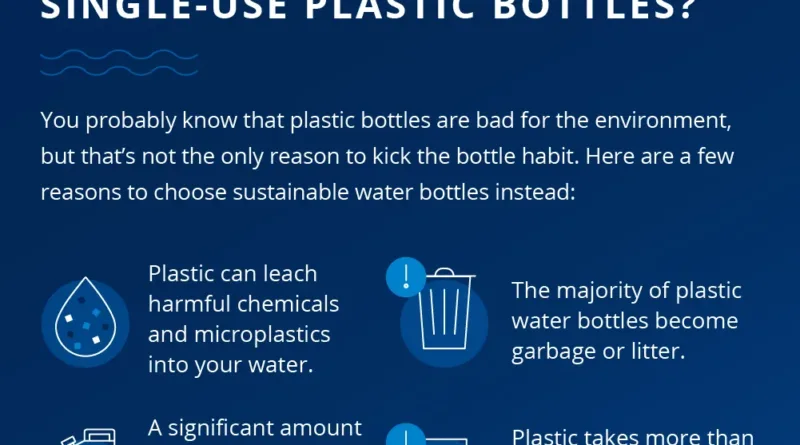Plastic Water Bottle- Is it harmful – 2024
Plastic Water Bottle
In today’s world, Plastic Water Bottle are commonplace since they are portable and convenient for on-the-go hydration. But worries about plastic bottles’ effects on the environment and public health have been raised by their widespread use. The possible health implications of drinking water from plastic bottles have also been investigated, even though the environmental repercussions of plastic pollution are well known.
Chemicals from plastic bottles can seep into water and then enter the human body when consumed, as evidenced by studies conducted in recent years. A number of these substances, including phthalates and bisphenol A (BPA), are recognized as endocrine disruptors, which means they may affect how well the body uses insulin.
Delays in development, irregularities in reproduction, and an elevated risk of specific cancers have all been connected to this interference and health problems.
The next time you buy plastic water bottles, purchase veggies online that are packaged in plastic wrap, or purchase seafood, keep in mind that the food and water you consume are just introducing microplastics into your body by leaking.
Worse, a recent study discovered that these microplastics may increase your risk of heart attack and stroke by 4.5 times when they float in your bloodstream.
Additionally, the creation, consumption, and disposal of plastic water bottles add to pollution in the environment, which may have an unintended negative effect on human health. Because plastic bottles must be manufactured using energy-intensive procedures and fossil fuels, they contribute to environmental damage and carbon emissions.
Furthermore, if plastic bottles are disposed of inappropriately, they may leak toxic compounds into water and soil, contaminating ecosystems and perhaps making their way up the food chain.
Follow Our Digiknowledge.co.in Page for Latest update about Bikes, Cars, Sports, , Life style and many more.
Microplastics, or breakaway plastic particles smaller than five millimeters, have been discovered inside people’s arteries by a recent study from the University of Campania in Italy that was published in the New England Journal of Medicine (NEJM). 304 individuals’ arteries were checked for plaque or fatty deposits, and the results showed that more than half of them had microplastics implanted in them.
The primary blood vessels that feed blood to the neck, face, and brain are the carotid arteries, where these originated.
Furthermore, within three years, the obstructing particles increased the risk of heart attacks and blockages.
Individuals, communities, and legislators are looking into alternatives and pushing for sustainable solutions as worries about the effects plastic water bottles have on human health and the environment continue to develop. In an effort to lessen the negative effects of our dependency on plastic for hydration, initiatives are being undertaken to promote the use of reusable water bottles and enact policies targeted at reducing single-use plastics. Nevertheless, resolving these problems calls for a multidimensional strategy that takes into account both systemic changes and individual behavior modification.
What are the Health Implications of Plastic Water Bottles?
Chemical Leaching:
The plastics used to make plastic water bottles are usually polycarbonate or polyethylene terephthalate (PET). Particularly when exposed to heat or sunlight, these materials have the potential to leach dangerous compounds into the water. One such chemical is bisphenol A (BPA), which has been connected to a number of health concerns, such as irregular hormone levels, difficulty with reproduction, and a higher chance of developing specific malignancies.
Microplastic Contamination
As plastic water bottles age, little particles may break off and find their way into the water supply. Drinking water straight out of the bottle exposes consumers to these microscopic plastic particles, which may be harmful to their health. The body has been shown to accumulate microplastics, which may be a factor in oxidative stress, inflammation, and other health issues.
Environmental pollution,
Water bottles are a source of environmental pollution, which has an indirect effect on human health. This pollution is caused by their manufacture, use, and disposal. Exposure of humans to hazardous chemicals and pollutants can occur from plastic pollution in oceans and waterways, which contaminates seafood and water supplies.
Aside from endangering ecosystems and wildlife, the buildup of plastic garbage in the environment also disrupts delicate ecosystems and lowers biodiversity.
In conclusion:
Although plastic water bottles are easily accessible and convenient for staying hydrated, there are serious worries about the effects they have on the environment and human health. Microplastic contamination, the release of toxic compounds into the environment, and pollution are all reasons why sustainable substitutes and conscientious consumer habits are essential.
Comprehending the manufacturing procedure of plastic water bottles illuminates the intricacies involved and draws attention to prospects for novelty and enhancement within the packaging sector.
As customers, we possess the authority to make knowledgeable decisions and promote solutions that give equal weight to environmental sustainability and human health.
What is the main problem with plastic bottles?
Plastic bottles can have negative effects on the environment, including:
Microplastics,Chemical pollution, Ecosystems, Land animals, Ocean life and Sustainability.
How do plastic bottles affect the water?
in areas across the globe with poor waste management or a lack of properly sealed landfills, as a bottle breaks down into microplastic particles over time, some particles may seep into the soil and eventually make their way into our waterways, ultimately entering and polluting the ocean.
Should plastic bottles be banned?
Large volumes of natural resources and fossil fuels are needed to produce plastic bottles. A sizable carbon footprint is produced throughout the life cycle of these bottles, from extraction to production, shipping, and disposal. Single-use plastic bottle bans help us save resources and energy.
How much energy is used to produce bottled water?
The energy required to produce bottled water might be up to 2000 times higher than that of tap water.
How long does a plastic bottle take to decompose?
It takes about 450 years for a single-use plastic bottle to break down.




